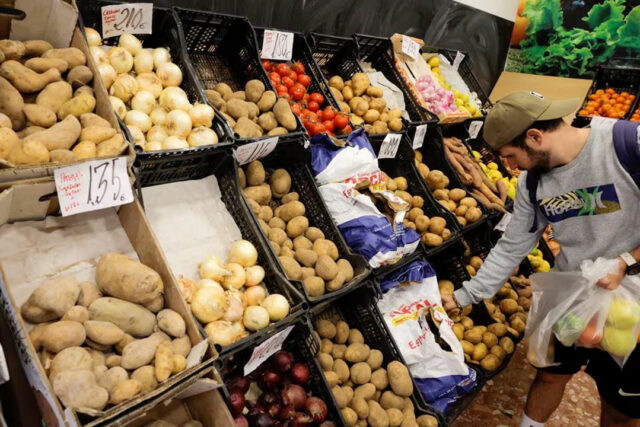Spain extends some cost-of-living measures

MADRID — Spain has extended a slew of measures designed to help people cope with high costs of living into 2024, even as the rate of inflation slows.
Like other European countries, Spain has grappled with a cost-of-living crisis in the aftermath of the COVID-19 pandemic, exacerbated by the impact of the war in Ukraine on energy prices.
“This new phase will serve to consolidate the progress achieved over the past five years,” Prime Minister Pedro Sanchez, who won another term as premier in November, told a news conference after the cabinet approved the new package.
Mr. Sanchez said gross domestic product was set to have grown by almost 2.5% this year. The government’s previous GDP growth forecast was for 2.4%.
Pensions will be raised by 3.8% in 2024 to match average inflation over the past year, Mr. Sanchez added.
According to a statement by the Social Security ministry, this increase will carry an estimated cost of 7.3 billion euros. Among the measures were a broadening of subsidies for minors and young people on public transport to all regular users and an extension of the reduction of value-added tax (VAT) for essential items such as fruit and vegetables, pasta, and cooking oils.
A controversial so-called windfall tax for energy companies, which brought in around three billion euros in 2023, has been tweaked to allow companies to partially offset the 1.2% levy if they invest in renewable energy projects.
A similar levy for banks will be unchanged for 2024 following an agreement between Sanchez´ Socialists and his junior coalition partners, the hard-left Sumar party.
Some measures will be phased out. A VAT reduction on energy bills, which reduced the rate to 5% during 2023, will slowly return to 21%, Sanchez said.
The 21% VAT on gas bills will be reinstated in April, according to a Budget Ministry source.
The tax rate on electricity will rise to 10% for 2024, the government said in a statement. — Reuters



